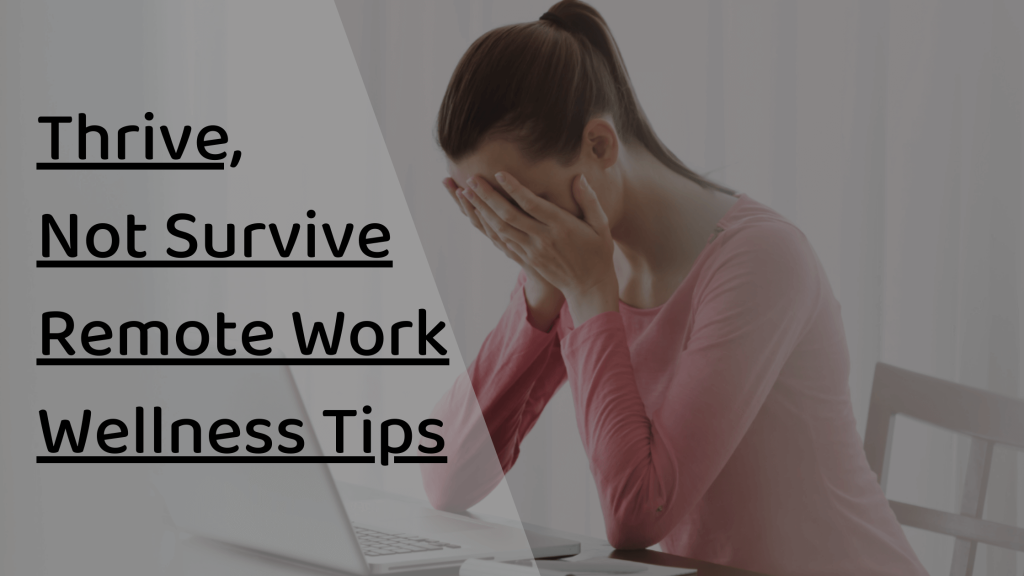Working from home seems like a win-win: more freedom, less stress, seems awesome, right? But for some, it’s not all sunshine and rainbows. Loneliness, nonstop work, and stress can turn your home office into a mental mess.
While remote work has undeniable benefits, it’s important to acknowledge how it can impact your well-being. Neglecting your mental health in this setup can quickly turn your dream haven into a hidden nightmare.
So let’s talk about the good, the bad, and the real impact of remote work on your mind.
How Remote Work Affects Mental Health
1. Isolation and Loneliness:
Working from the comfort of your home can sometimes translate to a sense of isolation. The absence of face-to-face interactions with colleagues may lead to feelings of loneliness, impacting mood, motivation and mental health over time.
2. Blurred Boundaries:
When your office is also your living room, boundaries become hazy, leading to burnout and stress. The line between professional and personal life often becomes blurred in a remote work setting. This constant overlap can lead to overworking, stress, and affecting mental well-being.
3. Zoom Fatigue:
Endless virtual meetings and constant screen time contribute to what is now widely known as “Zoom fatigue.” The mental strain from video calls can be draining and impact overall cognitive well-being.
4. Lack of Routine:
Remote work provides flexibility, but it can also disrupt established routines. The absence of a structured daily schedule may lead to a sense of disarray, impacting mental focus and stability. The “always on” culture can make it difficult to disconnect, leading to anxiety and sleep disturbances.
So, how do you strike the balance and ensure your mental health doesn’t become a casualty of remote work? Here are proven strategies:
Nurturing Mental Health in a Remote Work Setting
1. Establish Clear Work-Life Boundaries:
Set defined work hours and stick to them. Create a designated workspace that you can step away from when the workday is over, fostering a clear distinction between work and personal time.
2. Foster Social Connections:
Actively seek opportunities for social interaction, whether through virtual coffee breaks, team-building activities, or casual check-ins. Building and maintaining connections are crucial for combating feelings of isolation.
3. Create a Consistent Routine:
Structure your day with a consistent routine. This includes regular wake-up and sleep times, scheduled breaks, and dedicated time for meals. A routine provides a sense of normalcy and stability.
4. Combat Zoom Fatigue:
Implement strategies to manage virtual meeting fatigue. Consider opting for phone calls when video is not essential, take breaks between meetings, and communicate with colleagues about the importance of balanced screen time.
5. Disconnect to Reconnect:
Schedule digital detox time. Power down your devices, close your laptop and simply be present in the moment. Allow your mind to rest and recharge away from the constant digital hum.
6. Prioritize Mental Health Breaks:
Incorporate short mental health breaks into your day. Whether it’s a quick walk, a few minutes of mindfulness meditation, or stretching exercises, these breaks can refresh your mind and enhance overall well-being.
7. Engage in Physical Activity:
Regular exercise has proven benefits for mental health. Dedicate time to physical activity, whether it’s a home workout, yoga, or a brisk walk. Physical well-being contributes significantly to mental well-being.
8. Seek Professional Support:
If the challenges of remote work start to impact your mental health significantly, don’t hesitate to seek professional support. Virtual counseling services are increasingly available and can provide valuable assistance.
Conclusion:
Remember, prioritizing your mental health is not a luxury, it’s a necessity. By actively creating boundaries, fostering connections, embracing healthy habits, and disconnecting to recharge, you can transform your remote work experience from a mental health minefield into a haven of productivity and well-being.


